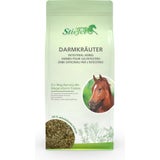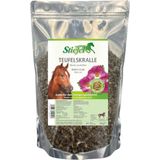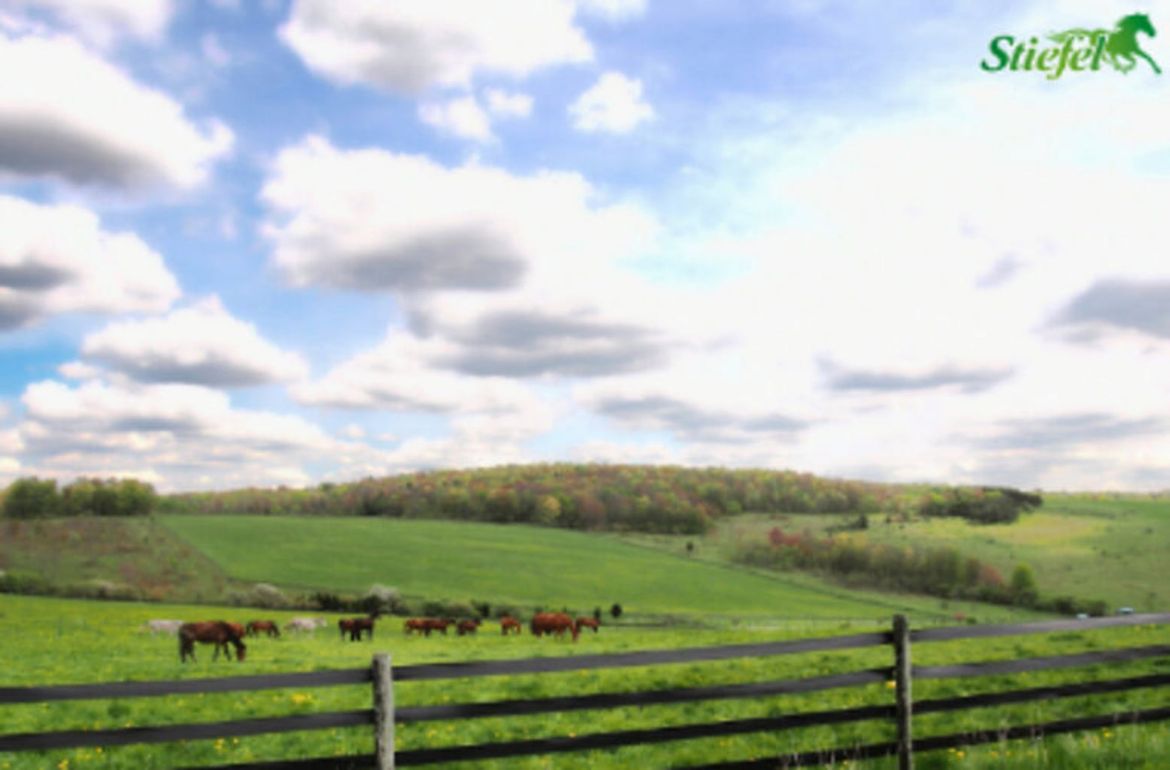Proper Grazing
The grazing season is approaching. For weeks horse and rider have been looking forward to the fact that it is finally getting warmer again, the grass begins to sprout in the field and the new turning-out season can begin. But without proper pasture management, the joy of spring and the lush grass can quickly turn into a disaster. We'll tell you how you can optimally prepare your horse for the grazing season.
The gastrointestinal tract of our horses is sensitive and takes a few weeks to switch from hay feeding to grass.
But why is that?
Originally the horse was a steppe animal and thus used to barren grasslands. Most of the day the horse was busy looking for tufts of grass with its head bowed. Accordingly, the horse's gastrointestinal system has also adapted to the meagre feeding conditions and permanent eating. And that is still the case today. However, our meadows are usually too lush, so that the horse absorbs too many nutrients in a short time. Especially in spring, when it is warm during the day but frosty temperatures are reached at night, the grass accumulates more fructans, which can lead to problems in large quantities and/or too quickly in too short a time. Diarrhoea, colic, laminitis or EMS can be the consequences.
It is therefore important to lead the horse slowly but steadily towards the lush grass. In the case of previously ill or sensitive horses, you should proceed even more slowly. All well and good, but...
How do I prepare my horse for the coming grazing season?
We recommend, provided there are no previous illnesses, that you graze your horse by the hand or at least under supervision and gradually increase the grazing time. In the first few days, 15 minutes should not be exceeded. Then increase by 15 minutes every 2-3 days. After about 4 weeks you will have grazed for over 2 hours and you can safely send your horse into the field.
Proper grazing takes time!
But your horse and especially their immune system will thank you.
How can you give your horse additional support during the grazing season?
To support the gastrointestinal tract of your horse during grazing, you can feed both our Stiefel Stomach Herbs and the Stiefel Intestinal Herbs.
Stiefel Stomach Herbs are a specially selected blend of fennel, aniseed and caraway seeds to stabilise the horse's stomach. The herbs can have a positive effect on a stressed stomach and associated symptoms such as bloating, stomach cramps, constipation or diarrhoea. In addition, the substances contained can have an antispasmodic, appetite and digestive effect.
The Stiefel Intestinal Herbs consist of sage, lemon balm, chamomile, oregano, anise and yarrow to regulate the gastrointestinal tract. The herbs contained can also have a positive effect on flatulence, faeces, diarrhoea and a tendency to colic and can have a relaxing, antispasmodic, appetite and digestive effect. The tannin contained in the herbs can support and stabilise the intestinal mucosa.
Both herbal mixtures can be fed alternately every two weeks as a cure to support grazing.
Of course, you can also feed our Stiefel individual herbs, which can have a positive effect on the gastrointestinal tract. Here we recommend:
Anise, fennel, chamomile, sage, ribwort, liquorice root and thyme.
A few more useful tips to get your horse off to a good start:
- Give your horse enough hay before going to pasture, but not concentrated feed.
- Even after grazing, your horse should eat hay before the concentrate is given.
We hope our tips will help you and your horse to graze healthily.
Latest reviews
-
 5.0 (12)
5.0 (12)Stiefel Intestinal Herbs, 1 kg
Bestseller- 100% natural herbal mixture
- For digestive problems
- To regulate the gastrointestinal tract
£21.49 (£21.49 / kg)Delivery by May 06
-
 4.8 (9)
4.8 (9)Stiefel Devil´s Claw, Chopped, 1 kg
Bestseller- Good for joints & tendons
- Chopped roots
- Can have a positive effect on the musculoskeletal system
£26.23 (£26.23 / kg)Delivery by May 06
-
 £8.68 (£17.36 / l)
£8.68 (£17.36 / l)Delivery by May 06
-
 £9.56 (£47.80 / l)
£9.56 (£47.80 / l)Delivery by May 06
-
Great Britain: Free standard delivery from £79.90
-
Free
returns Secure payments
with SSL encryption technology

